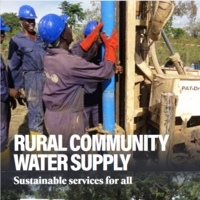Search
Books+
Searching 1,730 books
Search related to the career Petroleum Geologist
Skills required to become a petroleum geologist:
- Geological Knowledge: A strong understanding of geology, including sedimentary processes, rock formations, and structural geology.
- Reservoir Evaluation: Proficiency in evaluating and analyzing petroleum reservoirs, including assessing their potential, size, and productivity.
- Geological Mapping: Ability to create accurate geological maps and cross-sections to identify potential hydrocarbon reservoirs.
- Geophysical Interpretation: Skill in interpreting seismic data and other geophysical information to locate subsurface structures and potential oil and gas reservoirs.
- Well Logging: Knowledge of well logging techniques to analyze rock formations and determine their composition, porosity, and permeability.
- Reservoir Modeling: Proficiency in using specialized software to create 3D models of reservoirs and simulate fluid flow to estimate reserves and optimize production.
- Data Analysis: Ability to collect, interpret, and analyze geological and geophysical data to make informed decisions and recommendations.
- Problem Solving: Strong problem-solving skills to address complex geological challenges and find innovative solutions.
- Communication: Effective communication skills to present findings, write reports, and collaborate with multidisciplinary teams.
- Fieldwork: Willingness to work in remote locations and conduct field surveys, collect samples, and supervise drilling operations.
- Environmental Awareness: Understanding of environmental regulations and the ability to minimize the impact of petroleum exploration and production activities.
Note: The skills required may vary depending on the specific job requirements and the company or organization.
Source: Various AI tools
Vocational skills
Mining
Searched in English.















